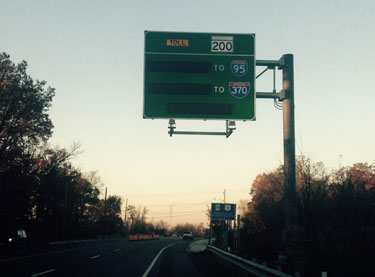
FAIRFAX, Va. — After months of reports about drivers being taken to court for unpaid tolls and fines in the thousands, a Virginia lawmaker says something needs to change.
In an exclusive interview with WTOP, Del. Scott Surovell (D-Mt. Vernon) says that Transurban and lawmakers in Richmond were trying to fit a “square peg in a round hole.”
Surovell says current laws don’t account for new toll roads without any toll booths to warn drivers about a problem with their E-ZPass account. For example, at the Dulles Toll Road or Dulles Greenway, a yellow or red light will flash if there is a problem with the E-ZPass acount.
“You have to have a system that ensures if someone is flagrantly violating the law, that the toll collector has power to do something about it. You also have a system that doesn’t unduly punish people who made innocent mistakes. You shouldn’t be able to get sued for $10,000 because E-ZPass turned off your auto-replenish or the credit card was briefly expired,” says Surovell.
WTOP posed a hypothetical scenario to Surovell: A regular commuter has an expired credit card on file and drives the Express Lanes to and from work for six days before being notified of the problem. This would equal 12 unpaid toll trips. The person can demonstrate that he paid tolls with an E-ZPass before the problem and after the problem was fixed. Under Transurban policies, the first invoice would be for $150 plus tolls. The second invoice would be $300 plus tolls.
“If some guy were to just deliberately drive on the HOT Lanes, not use a transponder, know exactly what he’s doing, then I don’t have a problem whacking him for $300. But somebody who has a dead battery or credit card isn’t updated, I’m not sure that person should be A) punished at all or B) to that extent,” says Surovell.
Under the First-Time Forgiveness Program, Transurban will waive all fees against a driver for a dead battery or credit card being expired, if the problem is rectified within 30 days.
If not, Transurban caps the amount it’ll sue someone for to $2,200, plus about $200 in court costs.
“Although less than 0.1 percent of all 495 Express Lane trips end up in court, we continue to do all we can to minimize any traveler going to court, including the First-Time Forgiveness program which has helped nearly 800 travelers,” said Transurban spokesman Mike McGurk earlier in January.
Transurban has also said that these fees and penalties are put back into the enforcement program and that the company is not profiting from it. McGurk says it’s a “sizeable deficit,” although he declined to provide financial information to WTOP.
“It’s difficult to figure out a system where you make sure you punish the flagrant violators who are cheating the system and cheating us, versus not punishing people who are not all that culpable. It’s very hard. I think this whole process has been a real learning experience for everybody,” says Surovell.
He says that if he were re-elected to office in November he would look at whether there needs to be changes to Virginia law to address the issue. But any changes would come during the 2016 General Assembly session.
Fairfax County District Court Judge Dennis J. Smith will also decide on these issues in March. His ruling will affect all drivers taken to court for unpaid tolls.
Follow @WTOP on Twitter and WTOP on Facebook.







